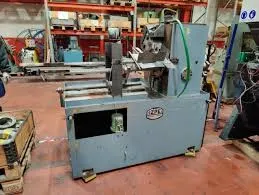
-
 Afrikaans
Afrikaans -
 Albanian
Albanian -
 Amharic
Amharic -
 Arabic
Arabic -
 Armenian
Armenian -
 Azerbaijani
Azerbaijani -
 Basque
Basque -
 Belarusian
Belarusian -
 Bengali
Bengali -
 Bosnian
Bosnian -
 Bulgarian
Bulgarian -
 Catalan
Catalan -
 Cebuano
Cebuano -
 Corsican
Corsican -
 Croatian
Croatian -
 Czech
Czech -
 Danish
Danish -
 Dutch
Dutch -
 English
English -
 Esperanto
Esperanto -
 Estonian
Estonian -
 Finnish
Finnish -
 French
French -
 Frisian
Frisian -
 Galician
Galician -
 Georgian
Georgian -
 German
German -
 Greek
Greek -
 Gujarati
Gujarati -
 Haitian Creole
Haitian Creole -
 hausa
hausa -
 hawaiian
hawaiian -
 Hebrew
Hebrew -
 Hindi
Hindi -
 Miao
Miao -
 Hungarian
Hungarian -
 Icelandic
Icelandic -
 igbo
igbo -
 Indonesian
Indonesian -
 irish
irish -
 Italian
Italian -
 Japanese
Japanese -
 Javanese
Javanese -
 Kannada
Kannada -
 kazakh
kazakh -
 Khmer
Khmer -
 Rwandese
Rwandese -
 Korean
Korean -
 Kurdish
Kurdish -
 Kyrgyz
Kyrgyz -
 Lao
Lao -
 Latin
Latin -
 Latvian
Latvian -
 Lithuanian
Lithuanian -
 Luxembourgish
Luxembourgish -
 Macedonian
Macedonian -
 Malgashi
Malgashi -
 Malay
Malay -
 Malayalam
Malayalam -
 Maltese
Maltese -
 Maori
Maori -
 Marathi
Marathi -
 Mongolian
Mongolian -
 Myanmar
Myanmar -
 Nepali
Nepali -
 Norwegian
Norwegian -
 Norwegian
Norwegian -
 Occitan
Occitan -
 Pashto
Pashto -
 Persian
Persian -
 Polish
Polish -
 Portuguese
Portuguese -
 Punjabi
Punjabi -
 Romanian
Romanian -
 Russian
Russian -
 Samoan
Samoan -
 Scottish Gaelic
Scottish Gaelic -
 Serbian
Serbian -
 Sesotho
Sesotho -
 Shona
Shona -
 Sindhi
Sindhi -
 Sinhala
Sinhala -
 Slovak
Slovak -
 Slovenian
Slovenian -
 Somali
Somali -
 Spanish
Spanish -
 Sundanese
Sundanese -
 Swahili
Swahili -
 Swedish
Swedish -
 Tagalog
Tagalog -
 Tajik
Tajik -
 Tamil
Tamil -
 Tatar
Tatar -
 Telugu
Telugu -
 Thai
Thai -
 Turkish
Turkish -
 Turkmen
Turkmen -
 Ukrainian
Ukrainian -
 Urdu
Urdu -
 Uighur
Uighur -
 Uzbek
Uzbek -
 Vietnamese
Vietnamese -
 Welsh
Welsh -
 Bantu
Bantu -
 Yiddish
Yiddish -
 Yoruba
Yoruba -
 Zulu
Zulu
Advanced Techniques for Custom Pipe Thread Rolling Machines in Industrial Manufacturing Processes
Custom Pipe Thread Rolling Machine Revolutionizing Industrial Pipe Manufacturing
In the realm of industrial manufacturing, precision and efficiency are paramount. Among the various tools and machines employed in this sector, the custom pipe thread rolling machine stands out as a crucial innovation that enhances the production of threaded pipes. As industries continue to grow and evolve, the demand for high-quality pipe fittings and robust threading solutions has spurred the development of specialized machinery, leading to significant advancements in manufacturing processes.
A custom pipe thread rolling machine is designed specifically to create threads on pipes with higher accuracy and reduced material wastage. Unlike conventional cutting methods, which can produce inconsistent results and generate excess scrap, the rolling process works by deforming the metal to form threads. This technique not only improves the strength of the final product—a vital attribute for pipes used in high-pressure applications—but also optimizes material use, making it a preferred choice in various industries.
One of the key advantages of custom pipe thread rolling machines is their ability to accommodate varying pipe sizes and threading requirements. Manufacturers can tailor these machines to meet specific project specifications, ensuring versatility and efficiency. Such customization may include alterations to the thread pitch, depth, and overall dimensions, allowing industries to produce specialized products without the need for multiple machines. This adaptability is critical in sectors such as oil and gas, construction, and plumbing, where different types of pipes and fittings are frequently required.
Moreover, the technological advancements incorporated into modern pipe thread rolling machines have significantly improved productivity. Equipped with automated systems, these machines ensure consistent performance and can operate for longer periods with minimal human intervention. Automation minimizes the risk of errors and enhances safety in the workplace, as operators can focus on monitoring production rather than manual threading processes. This shift not only accelerates production rates but also lowers labor costs, thus providing manufacturers with a competitive edge.
custom pipe thread rolling machine

In addition to efficiency and precision, custom pipe thread rolling machines also contribute to sustainability in manufacturing. The cold working process involved in thread rolling generates less waste material compared to traditional cutting methods. Additionally, the enhancement in metal properties ensures that the finished products are more durable, leading to longer-lasting applications and reduced environmental impact. By investing in such machines, companies can align themselves with modern sustainability goals while meeting the growing demand for quality products.
Furthermore, the implementation of digital systems in these rolling machines has opened the door to more advanced quality control measures. With integrated software, manufacturers can monitor the threading process in real time, ensuring that the output meets stringent quality standards. This level of oversight allows for swift adjustments and immediate rectification of any issues that may arise during production, further enhancing the reliability of the output.
As industries continue to push the boundaries of innovation, the importance of custom pipe thread rolling machines cannot be overstated. Their role in optimizing manufacturing processes, ensuring product quality, and supporting sustainable practices positions them as indispensable tools in the modernization of pipe production. For businesses looking to enhance their operational efficiency and product offerings, investing in a custom pipe thread rolling machine is not just a strategic decision—it is an essential step towards maintaining competitiveness in a rapidly evolving industrial landscape.
In conclusion, the evolution of custom pipe thread rolling machines represents a significant leap forward in the manufacturing of pipes and fittings. By combining efficiency with customization, these machines are set to redefine the standards of production in various sectors, paving the way for a future that values both quality and sustainability. As demand continues to grow, embracing this technology will be critical for manufacturers aiming for success in the dynamic industrial environment.
